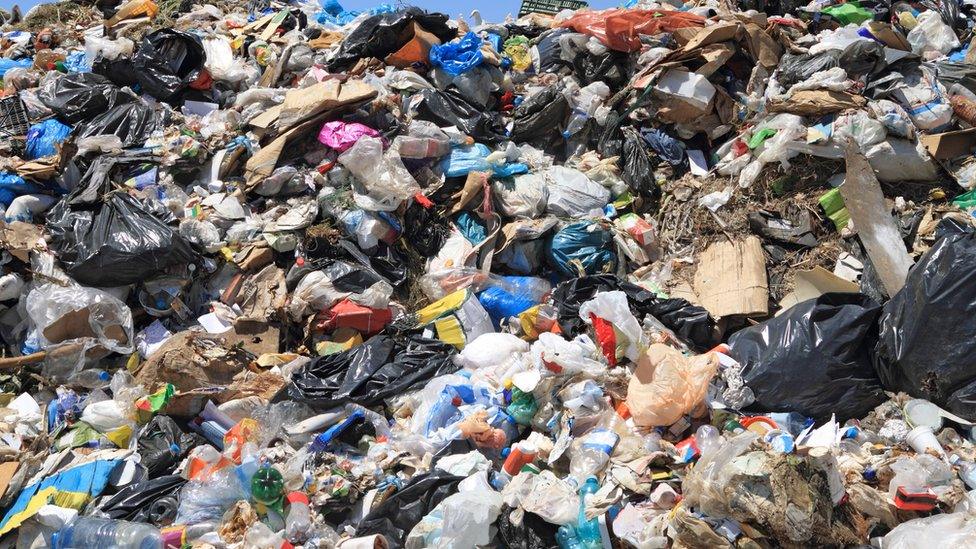Climate change: Wales imports 'cause deforestation'
- Published
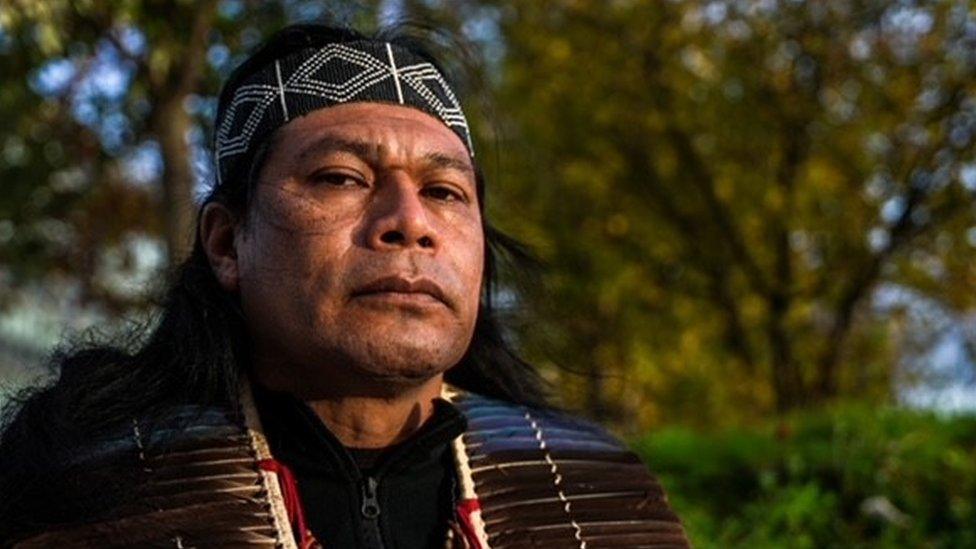
Rivelino Verá Gabriel said deforestation made life hard for Brazil's indigenous people
A Brazilian tribal chief has warned Welsh soya imports could be responsible for "not only deforestation but indigenous blood".
Rivelino Verá Gabriel said soy farming was wrecking the lifestyle of the South American nation's Mbya Guarani people.
It comes as the effect on deforestation by goods imported to Wales from high risk areas is exposed in a new report.
It has led the Welsh government to promise action on products such as beef, soy and palm oil.
Mr Gabriel lives in Brazil's Atlantic Forest and is a coordinator of the Guarani Yvyrupa Commission, which brings together members of the Guarani people.
Commenting on the report, he said: "People who buy soya must know where it comes from, that there's strong traceability.
"They need to know whether this soya they're buying to feed a chicken from Wales, for instance, is coming from deforested areas in indigenous territories."
Deforestation meant the ability of his people to survive was becoming increasingly hard, he said.
Rivers became polluted, traditional herbs could not be found, and hunting was made more difficult.
Environment charities calculated an area 40% the size of Wales grew a handful of key commodities for it.
It has led to calls for climate change targets to be amended to take account of goods shipped in from abroad.
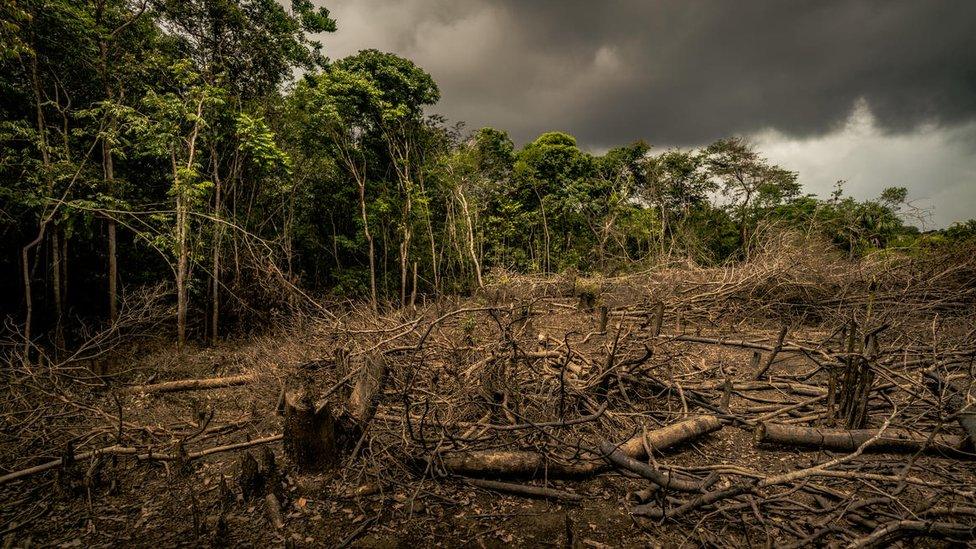
The effect on deforestation by goods imported to Wales has been exposed in a new report
What does the report say?
Charities WWF Cymru, Size of Wales and RSPB Cymru worked on the study.
They looked at cocoa, palm, beef, leather, natural rubber, soy, timber, pulp and paper imports.
The report showed nearly a third of land used to grow these for Wales are in countries at high risk of deforestation, and exploitation of workers.
Carbon emissions linked to forest clearance to provide soy, cocoa, palm and rubber imports alone were equivalent to nearly a quarter of Wales' transport emissions every year.
An area five times Newport's size is used to grow soy for Wales.
The charities said Wales' people were contributing to deforestation by eating meat fed on such "high-risk soy".
Meanwhile, each year Wales uses land overseas the size of the Brecon Beacons to satisfy demand for beef.
More than a quarter (26%) is in countries at high risk of deforestation and labour exploitation.
What can Wales do about deforestation?
The report advises the Senedd to encourage farmers to adopt nature and climate-friendly practices which do not rely on imported animal feed.
A strategy that drives and rewards traceable farm-to-fork supply chains is also urged.
The charities want the Welsh and UK governments to ensure post-Brexit trade deals guarantee high environmental and social standards.
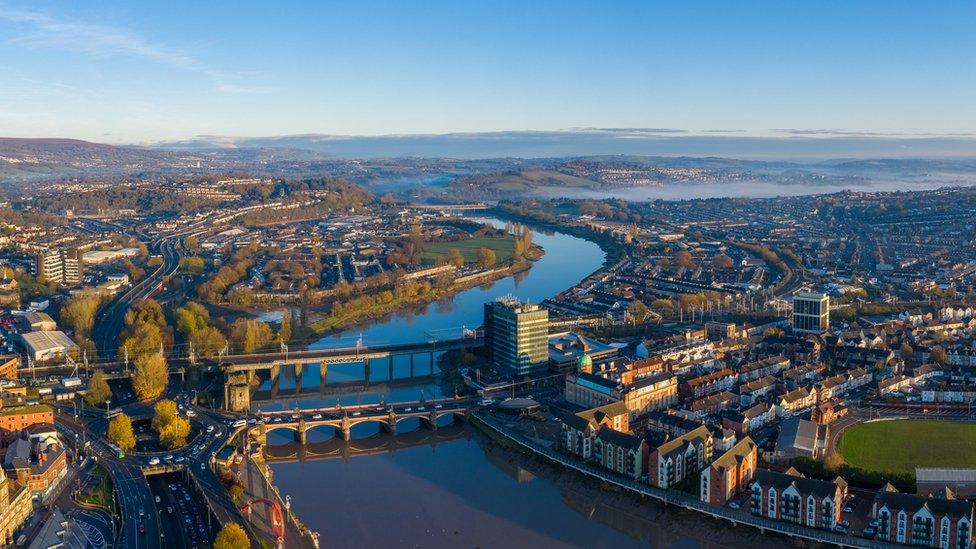
An area five times Newport's size is used to grow soy for Wales.
Current Welsh targets to cut greenhouse gases and reach net zero only focus on domestic emissions so there is a drive for a report that accounts for those caused by imports.
WWF Cymru's Shea Buckland-Jones said Wales was having a "catastrophic" effect on the world's forests.
"We know what needs to be done and this report sets out some of the solutions," he said.
"Wales must act now by changing how we buy, consume and invest."
Size of Wales' deputy director, Barbara Davies Quy, said the COP26 summit was a chance for Wales to show leadership and take bold action.
"The Welsh government must seize this opportunity to drive positive change in our supply chains and commit to including deforestation free targets in all public sector spending," she said.
In COP26's first major deal last week, more than 100 leaders promised to end and reverse deforestation by 2030.
The UK was among signatories. The charities say action is needed sooner.
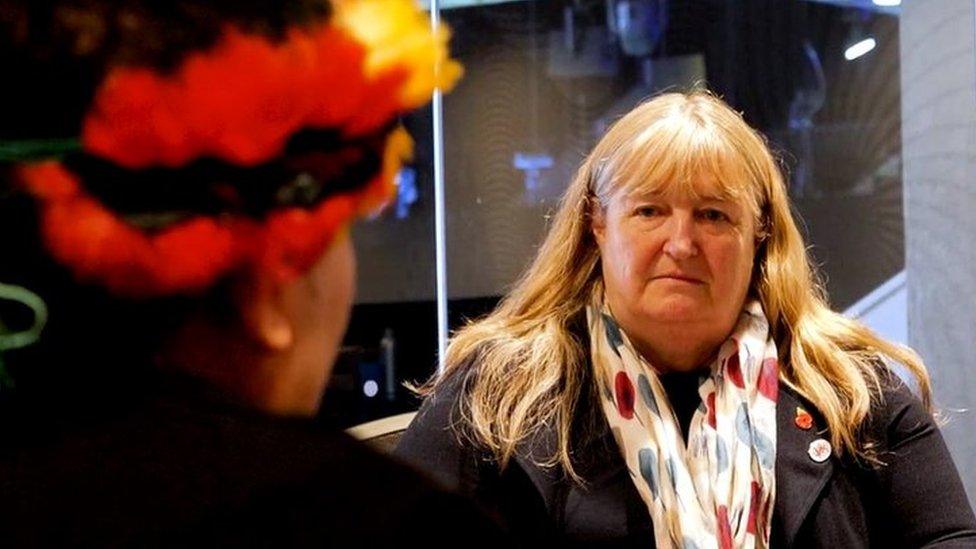
Welsh government minister Julie James said she was determined to change Welsh government procurement policy
Figures suggest almost 20% of the Amazon rainforest has been lost and, if another 5% goes, a tipping point could be triggered where it will not be able to sustain itself as a tropical rainforest.
Wales' climate change minister, Julie James, said the report was "shocking".
"We absolutely have to do something to diminish and hopefully eliminate our footprint abroad as well as at home."
She was "absolutely determined" to change Welsh government procurement policy.
"We will also need to talk to all of our supermarkets and other purchasers across Wales to get everybody on board," she said.
Ms James said she had met with members of Peru's indigenous Wampis people at the conference.
"They were telling me about the destruction of their native lands, the deforestation, completely unintended by people who don't really understand what they're buying," she said.
Changing climate change targets, she said, was something the Welsh government was "determined to do".

Cook Aled Hill said people should question where produce comes from
Cardiff burger restaurant Ansh has started taking action.
The meat for its burgers comes from their farm, where it uses sustainable methods to rear their animals.
"It's important that people question where produce comes from, where the meat comes from, where the food comes from," cook Aled Hill said.
"Because you don't know whether something you buy is causing huge damage overseas."

FIGHT FOR YOUR RIGHTS: X-Ray returns and they've got your back
THE LONG WALK HOME: 20,000 miles, 4 years, 1 man

- Published29 October 2021
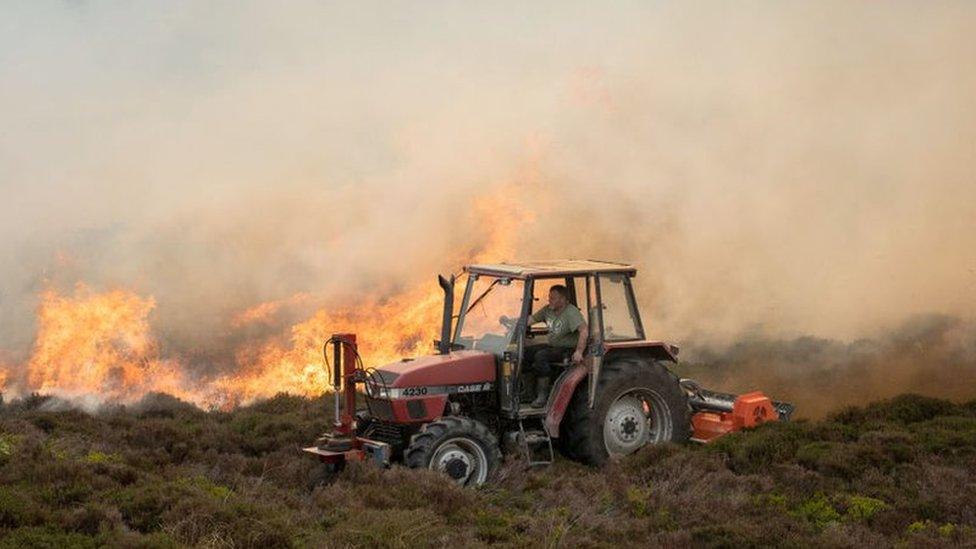
- Published22 January 2019
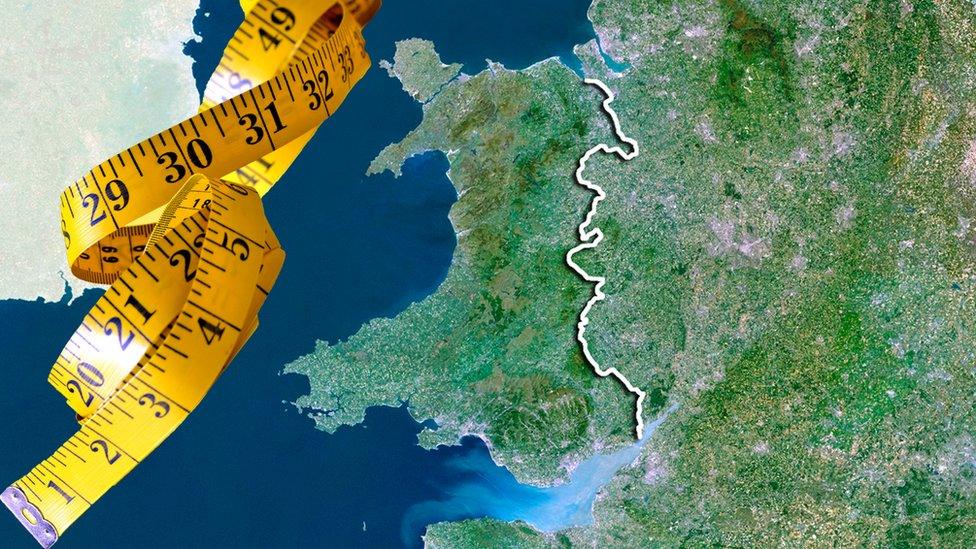
- Published3 April 2021
